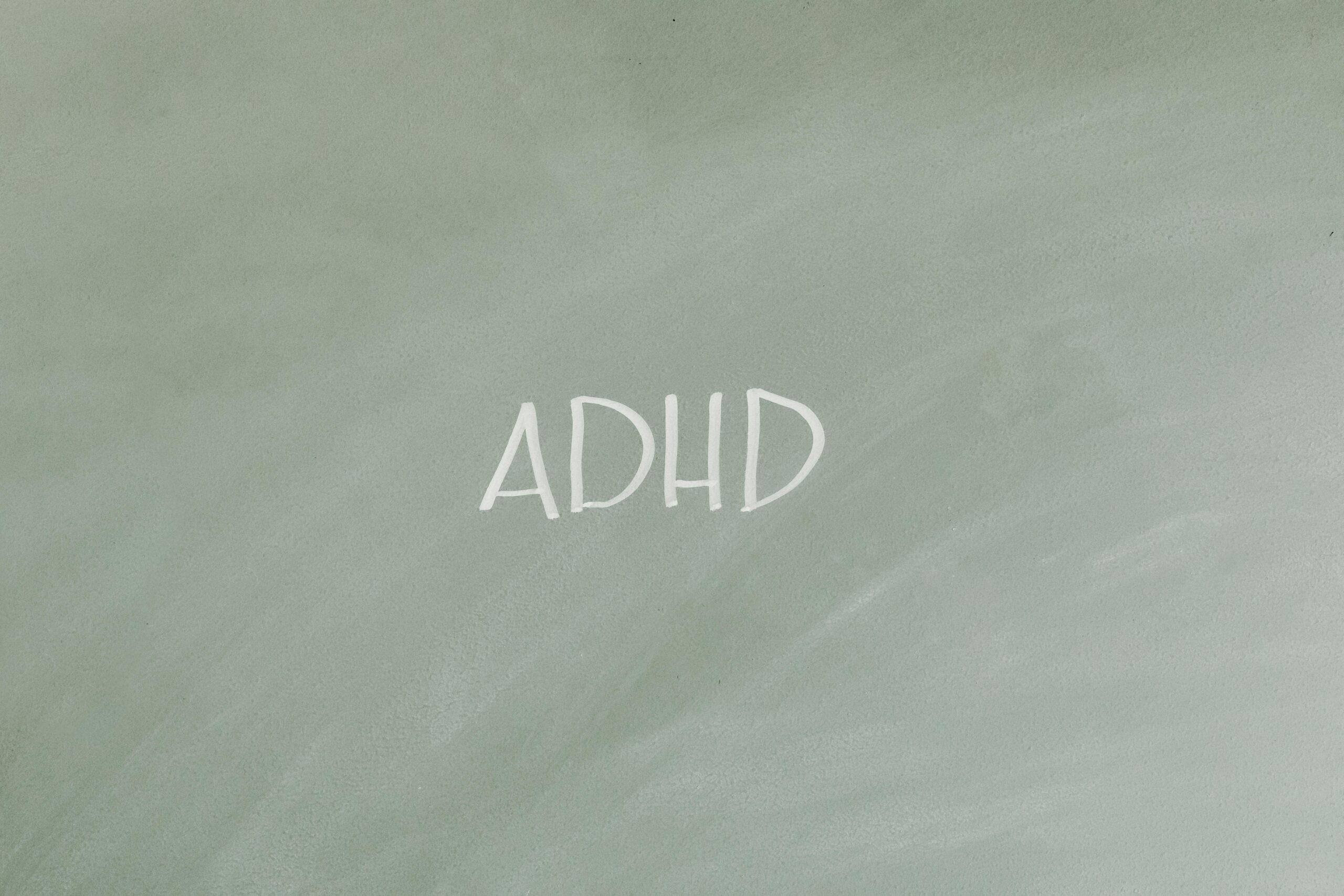The connection between your gut and brain is more powerful than you might think, and probiotics could be the key to unlocking superior cognitive performance.
🧠 The Gut-Brain Axis: Your Second Brain at Work
Scientists have discovered something remarkable: your gut contains approximately 100 million neurons, earning it the nickname “the second brain.” This intricate network, known as the enteric nervous system, communicates constantly with your brain through the gut-brain axis. This bidirectional communication highway uses neural, hormonal, and immunological signals to influence everything from your mood to your memory.
The gut-brain axis operates through multiple pathways, including the vagus nerve, which acts like a superhighway of information between your digestive system and your central nervous system. When your gut microbiome is balanced and healthy, this communication flows smoothly. However, when dysbiosis occurs—an imbalance in gut bacteria—the messages can become distorted, potentially affecting cognitive function, mental clarity, and emotional well-being.
Research has shown that approximately 95% of your body’s serotonin, a neurotransmitter crucial for mood regulation and cognitive function, is produced in the gut. This startling fact highlights why maintaining optimal gut health through probiotics isn’t just about digestion—it’s about supporting your brain’s ability to function at its peak.
Understanding Probiotics and Their Role in Cognitive Enhancement
Probiotics are live microorganisms that, when consumed in adequate amounts, confer health benefits to the host. These beneficial bacteria colonize your intestinal tract, creating a thriving ecosystem that supports not only digestive health but also brain function. The term “psychobiotics” has emerged in scientific literature to describe specific probiotic strains that produce measurable benefits for mental health and cognitive performance.
Different strains of probiotics offer varying benefits. Lactobacillus and Bifidobacterium species are among the most studied for their cognitive effects. These microscopic allies work by producing neurotransmitters, reducing inflammation, protecting the gut barrier, and even influencing gene expression related to brain health.
How Probiotics Influence Brain Chemistry
The mechanisms through which probiotics enhance brainpower are multifaceted and impressive. First, certain probiotic strains produce gamma-aminobutyric acid (GABA), a neurotransmitter that promotes calmness and reduces anxiety. When stress levels decrease, cognitive performance naturally improves, allowing for better focus, memory retention, and decision-making capabilities.
Second, probiotics help reduce systemic inflammation by strengthening the intestinal barrier. When this barrier is compromised—a condition known as “leaky gut”—inflammatory compounds can enter the bloodstream and eventually reach the brain, causing neuroinflammation that impairs cognitive function. By maintaining gut integrity, probiotics act as protective guardians for your brain.
Third, beneficial bacteria aid in the production of brain-derived neurotrophic factor (BDNF), a protein essential for the growth, maintenance, and survival of neurons. Higher BDNF levels are associated with improved learning, enhanced memory formation, and better overall cognitive resilience.
🔬 Scientific Evidence: What Research Reveals
The scientific community has conducted numerous studies examining the relationship between probiotics and cognitive function, with results that are increasingly promising. A landmark study published in the journal Gastroenterology demonstrated that women who consumed probiotics for four weeks showed altered brain activity in regions controlling emotion and sensation compared to the control group.
Another compelling study involving elderly participants found that those who took a probiotic supplement containing Lactobacillus and Bifidobacterium strains for twelve weeks showed significant improvements in cognitive test scores compared to the placebo group. The improvements were particularly notable in areas of memory recall and processing speed.
Research from UCLA showed that probiotics can actually change brain function, with MRI scans revealing altered neural responses to emotional tasks. This suggests that the gut microbiome doesn’t just influence brain health indirectly—it actively participates in shaping how our brains process information and respond to stimuli.
Probiotics and Stress Reduction
Chronic stress is one of the primary enemies of cognitive function, impairing memory, reducing focus, and accelerating cognitive decline. Multiple studies have demonstrated that specific probiotic strains can reduce stress hormone levels, particularly cortisol. In one notable trial, participants taking a combination of Lactobacillus helveticus and Bifidobacterium longum reported significantly reduced psychological distress and improved problem-solving abilities.
The stress-reducing effects of probiotics create a positive feedback loop for cognitive performance. As stress decreases, the hippocampus—a brain region critical for memory formation—functions more effectively. Sleep quality often improves as well, providing the brain with essential restoration time for consolidating memories and clearing metabolic waste products.
Optimal Probiotic Strains for Cognitive Enhancement 🌟
Not all probiotics offer the same cognitive benefits. Understanding which strains provide specific advantages can help you make informed choices about supplementation:
- Lactobacillus rhamnosus: Studies show this strain can reduce anxiety-like behavior and support GABA receptor expression, promoting calmness and mental clarity.
- Bifidobacterium longum: Research indicates this strain may reduce stress, improve memory, and decrease anxiety symptoms while enhancing cognitive flexibility.
- Lactobacillus helveticus: Often combined with B. longum, this strain has demonstrated benefits for reducing psychological distress and improving cognitive performance under stress.
- Bifidobacterium breve: Emerging research suggests this strain may support cognitive function in older adults and help protect against age-related cognitive decline.
- Lactobacillus plantarum: This versatile strain may help reduce inflammation and support the production of neurotransmitters essential for focus and mental energy.
Incorporating Probiotics into Your Daily Routine
Maximizing the cognitive benefits of probiotics requires consistency and strategic implementation. The most effective approach combines both probiotic supplements and fermented foods, creating a synergistic effect that supports diverse microbial populations in your gut.
Probiotic-Rich Foods for Brain Health
Fermented foods have been consumed by cultures worldwide for centuries, long before scientists understood their beneficial effects. Including these foods in your daily diet provides not only probiotics but also essential nutrients and bioactive compounds that support overall health:
- Yogurt: Choose varieties with live active cultures and minimal added sugar. Greek yogurt offers the added benefit of higher protein content.
- Kefir: This fermented milk drink contains multiple probiotic strains and is often tolerated better than yogurt by those with lactose sensitivity.
- Sauerkraut: Unpasteurized versions provide beneficial bacteria along with vitamin C and fiber that feeds your microbiome.
- Kimchi: This spicy Korean fermented vegetable dish offers probiotics plus compounds that may have anti-inflammatory effects.
- Kombucha: This fermented tea provides probiotics and antioxidants, though watch for sugar content in commercial varieties.
- Miso: This Japanese fermented soybean paste adds flavor and beneficial microbes to soups and marinades.
- Tempeh: Fermented soybeans provide probiotics and complete protein, making it an excellent choice for plant-based diets.
Choosing Quality Probiotic Supplements
When selecting a probiotic supplement for cognitive benefits, several factors deserve consideration. Look for products that specify the strain names and colony-forming units (CFUs), typically between 10 billion and 50 billion CFUs per serving. The supplement should be shelf-stable or properly refrigerated, and ideally include multiple strains for diverse benefits.
Timing matters as well. Many experts recommend taking probiotics on an empty stomach or with a small meal, allowing the bacteria to pass through the stomach acid more quickly and colonize the intestines more effectively. Consistency is crucial—benefits typically emerge after several weeks of regular use, not immediately.
💪 Enhancing Probiotic Effectiveness with Prebiotics
Prebiotics are non-digestible fibers that serve as food for your beneficial gut bacteria. Think of probiotics as seeds and prebiotics as fertilizer—together, they create optimal conditions for a thriving gut microbiome. This combination approach, sometimes called “synbiotics,” maximizes cognitive benefits by ensuring probiotic bacteria have the nutrients they need to flourish.
Excellent prebiotic sources include garlic, onions, leeks, asparagus, bananas, oats, apples, and flaxseeds. Jerusalem artichokes and chicory root are particularly rich in inulin, a prebiotic fiber that effectively feeds beneficial bacteria. By including 25-35 grams of total fiber daily from diverse sources, you create an environment where probiotics can thrive and exert their cognitive-enhancing effects.
Lifestyle Factors That Amplify Probiotic Benefits
Probiotics don’t work in isolation. Your overall lifestyle significantly influences how effectively these beneficial bacteria can support cognitive function. Several complementary strategies can enhance the brain-boosting effects of probiotics:
Adequate sleep is non-negotiable for both gut health and cognitive performance. During deep sleep, your brain clears metabolic waste through the glymphatic system, while your gut microbiome undergoes its own restoration processes. Aim for 7-9 hours of quality sleep nightly to maximize probiotic benefits.
Regular exercise increases microbial diversity in the gut, creating a more resilient and beneficial bacterial community. Even moderate activity, such as 30 minutes of walking daily, can enhance the positive effects of probiotic supplementation on brain health.
Stress management practices like meditation, deep breathing, or yoga complement probiotic use by reducing cortisol levels and supporting the gut-brain axis. Research shows that mindfulness practices can actually alter gut microbiome composition in beneficial ways.
Limiting antibiotics to situations where they’re truly necessary helps preserve your gut microbiome. When antibiotics are required, taking probiotics during and after treatment can help restore bacterial balance more quickly.
🎯 Targeting Specific Cognitive Goals with Probiotics
Different cognitive objectives may benefit from tailored probiotic approaches. Understanding these connections allows for more strategic supplementation:
For Enhanced Memory and Learning
Focus on probiotic strains that support BDNF production and reduce inflammation. Bifidobacterium longum and Lactobacillus plantarum have shown particular promise in studies examining memory formation and recall. Combine these with omega-3 fatty acids from fish or algae sources, which work synergistically to support brain plasticity.
For Better Focus and Concentration
Strains that support dopamine and norepinephrine production can enhance attention and focus. Lactobacillus rhamnosus and certain Bifidobacterium species have demonstrated effects on neurotransmitter production. Pairing probiotics with adequate hydration and balanced blood sugar through regular, protein-rich meals amplifies these concentration-boosting effects.
For Mood Stability and Mental Clarity
Probiotics that increase GABA and serotonin availability support emotional balance and clear thinking. Lactobacillus helveticus combined with Bifidobacterium longum has been extensively studied for mood-related benefits. These work best when combined with adequate vitamin D levels, regular sunlight exposure, and social connection.
Understanding the Timeline: When to Expect Results
One common question about probiotic supplementation concerns timing—how long before cognitive benefits become noticeable? The answer varies based on individual factors, but general patterns have emerged from research.
Initial changes in gut microbiome composition typically occur within 2-4 weeks of consistent probiotic use. However, the downstream effects on brain function often require longer to manifest, usually becoming apparent between 4-12 weeks. Some individuals report subtle improvements in mood and mental clarity within the first few weeks, while more significant cognitive enhancements in memory and focus typically emerge after 8-12 weeks of consistent use.
Patience is essential. The gut microbiome represents a complex ecosystem, and meaningful changes require time. Consistency matters more than intensity—taking probiotics daily at moderate doses produces better results than sporadic high-dose supplementation.
⚠️ Safety Considerations and Potential Side Effects
Probiotics are generally recognized as safe for most people, with an extensive history of use in fermented foods and a strong safety profile in clinical trials. However, understanding potential side effects and contraindications ensures responsible use.
Some individuals experience mild digestive symptoms when first introducing probiotics, including temporary bloating, gas, or changes in bowel movements. These symptoms typically resolve within a few days as your system adjusts. Starting with lower doses and gradually increasing can minimize these effects.
People with severely compromised immune systems, those with central venous catheters, or individuals with certain underlying health conditions should consult healthcare providers before starting probiotic supplementation. While rare, cases of probiotic-related infections have occurred in immunocompromised individuals.
Quality matters significantly. Choose reputable brands that conduct third-party testing and provide transparency about strain types and CFU counts. Poor-quality supplements may not deliver the stated bacterial quantities or may contain contaminants that negate potential benefits.
The Future of Psychobiotics and Cognitive Health 🚀
The field of psychobiotics—probiotics specifically selected for mental health and cognitive benefits—represents one of the most exciting frontiers in neuroscience and nutrition. Emerging research suggests we’re only beginning to understand the profound ways gut microbes influence brain function.
Future developments may include personalized probiotic protocols based on individual microbiome analysis, allowing targeted interventions for specific cognitive concerns. Researchers are investigating next-generation probiotics engineered to produce higher levels of beneficial compounds or to target specific brain pathways more effectively.
The integration of artificial intelligence with microbiome research promises to unlock patterns and connections that would be impossible to identify through traditional analysis methods. These advances may lead to probiotic formulations customized for individual genetic profiles, lifestyle factors, and cognitive goals.
Creating Your Personalized Brain-Boosting Protocol
Implementing probiotics for cognitive enhancement works best as part of a comprehensive approach to brain health. Consider this framework for developing your personalized protocol:
Begin by establishing a baseline. Pay attention to your current cognitive performance, mood patterns, stress levels, and digestive health. This awareness helps you track improvements and identify which interventions provide the most benefit.
Introduce probiotics gradually, starting with either fermented foods or a quality supplement containing researched strains. Give your system at least 4-6 weeks to adjust before evaluating results or making changes.
Support your probiotics with prebiotics from diverse fiber sources, adequate hydration, quality sleep, and regular physical activity. These lifestyle factors aren’t optional extras—they’re essential components that determine how effectively probiotics can support your cognitive goals.
Track your progress through journaling, cognitive assessments, or simply noting subjective improvements in mental clarity, memory, mood, and focus. This tracking helps you understand what works best for your unique physiology and allows for informed adjustments to your protocol.

🌈 Embracing a Holistic Approach to Cognitive Wellness
The emerging understanding of the gut-brain connection through probiotics represents a paradigm shift in how we approach cognitive health. Rather than viewing the brain as an isolated organ, we now recognize it as intimately connected to the vast microbial ecosystem in our digestive tract.
This perspective opens exciting possibilities for enhancing cognitive function through nutritional interventions that were previously underappreciated. The science continues to evolve, but the current evidence strongly suggests that optimizing gut health through probiotics offers genuine benefits for memory, focus, mood, and overall cognitive performance.
By incorporating probiotic-rich foods and quality supplements into your daily routine, supporting them with prebiotic fibers and healthy lifestyle practices, you’re not just supporting your gut—you’re investing in your brain’s long-term health and performance. The connection between these two systems reminds us that optimal cognitive function depends on whole-body wellness, with the humble gut bacteria playing a surprisingly central role in unleashing your brain’s full potential.
Toni Santos is a deep-biology researcher and conscious-evolution writer exploring how genes, microbes and synthetic life inform the future of awareness and adaptation. Through his investigations into bioinformatics, microbiome intelligence and engineered living systems, Toni examines how life itself becomes a field of awakening, design and possibility. Passionate about consciousness in biology and the evolution of living systems, Toni focuses on how life’s architecture invites insight, coherence and transformation. His work highlights the convergence of science, philosophy and emergent life — guiding readers toward a deeper encounter with their living world. Blending genetics, systems biology and evolutionary philosophy, Toni writes about the future of living systems — helping readers understand how life evolves through awareness, integration and design. His work is a tribute to: The intertwining of biology, consciousness and evolution The emergence of microbial intelligence within and around us The vision of life as designed, adaptive and self-aware Whether you are a scientist, thinker or evolving being, Toni Santos invites you to explore the biology of tomorrow — one gene, one microbe, one awakening at a time.




